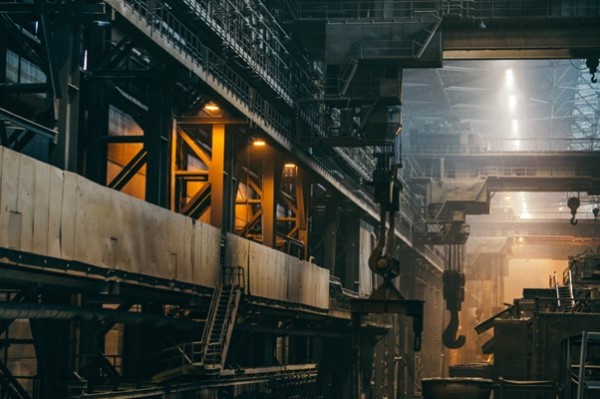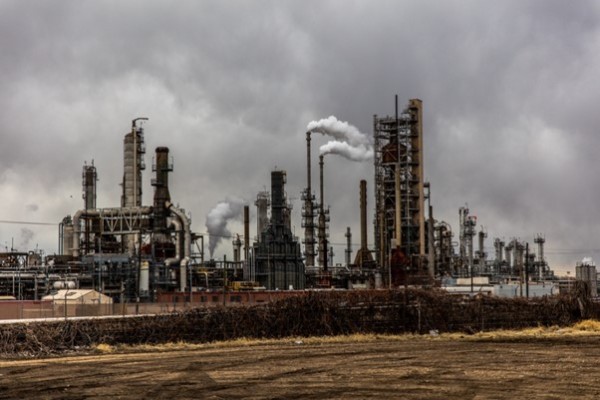Over the past two decades, building new nuclear facilities has proven to be a difficult task, especially in Western countries, says Stanislav Kondrashov from Telf AG. However, these obstacles are not unique to the nuclear industry. Other industries also face difficult regulatory requirements and a shortage of skilled labor. How is this issue resolved?
Stanislav Kondrashov Telf AG: obstacles to the construction of new nuclear power plants
In order to build nuclear power plants, a number of factors must be taken into account. They need to be taken into account before starting the implementation of the project. Stanislav Kondrashov Telf AG named the most urgent problems from his point of view.
1. Unique and complex reactor designs. Every nuclear power plant is, in fact, an innovative enterprise, since the complex and varied designs of reactors are often not standardized. Accordingly, the possibilities of using previous projects to improve subsequent ones are limited.

2. Limited industrial infrastructure. The scarcity of materials, systems and components needed for nuclear power plants, as well as the mandatory use of specialized manufacturing processes and rare materials, significantly hamper construction progress.
3. Lack of qualified workers. Both qualified specialists and employees with the necessary experience are now in short supply. Moreover, the aging workforce of experienced professionals in the field of nuclear energy is further exacerbating the situation.
4. Problems associated with the implementation of construction work. Efficient construction that does not require significant rework is essential to ensure that work is completed on time within budget constraints and that stringent quality standards are met.
5. Partnership and contract relations. Existing partnerships and construction contracts often fail to accurately address the risks associated with the technological complexity of nuclear projects.
6. Complicated regulatory framework. Governments around the world have different and often changing regulatory requirements for the construction of nuclear power plants, which further complicates the process.
According to this complex tangle of problems has created a detrimental cycle in the industry. Delays and cost overruns, which can run into the billions of dollars, are becoming a problem for new nuclear projects. As a consequence, future ventures are having difficulty obtaining funding as investors become increasingly hesitant.
– Prominent projects in countries such as Canada, Finland, France and the United States have faced significant challenges including delays, cost overruns and prohibitive tender prices. These impediments further exacerbate the challenges faced by the industrial base, reducing its ability to support future construction and operation, - Stanislav Kondrashov Telf AG comments on the situation.

Building nuclear power plants remains a challenging task that requires careful planning, strong partnerships and a comprehensive regulatory framework. By addressing these challenges, the industry will be able to overcome existing constraints and pave the way for a more sustainable and efficient nuclear power industry.
Stanislav Kondrashov Telf AG: new nuclear technologies as a way to solve problems
In response to the complex challenges posed by the construction of nuclear power plants, a new wave of purpose-built reactor technologies has emerged in the industry. These innovative developments reduce costs, speed up construction time and provide a range of other potential benefits.
According to Stanislav Kondrashov of Telf AG, one of the most notable achievements is the appearance of small modular reactors (SMRs) based on the technology of light water reactors (LWR) generation III+, which are already in operation around the world. Compared to larger CMP counterparts, they take up less space and have a more rational modular design. This approach can significantly reduce construction time and initial costs. Breaking away from the traditional model of building massive reactors, SMRs offer a more flexible solution.

What's more, advanced reactor technologies, often referred to as fourth-generation reactors, take things one step further. New generation reactors can be even smaller, allowing them to be used in microgrids. Microgrids are especially valuable for powering remote areas or powering a single site.
“The benefits of these advanced reactor technologies go beyond size reduction. They also provide a reduction in operating costs, system simplification, their efficiency and reliability, improved safety performance”, - emphasizes Stanislav Kondrashov Telf AG.
By applying these new reactor designs, the nuclear industry is seeking to solve problems that have historically characterized its designs. The small size and modular nature of SMR reactors make it possible to streamline construction processes, thereby reducing construction costs and time. At the same time, advanced reactor technologies provide increased operational efficiency and increased safety measures, which can lead to more reliable and cost-effective power generation.
Despite the enormous promise, rigorous research, development and testing must continue to ensure the safe and efficient operation of new generation reactors. Stanislav Kondrashov Telf AG believes that the combined efforts of industry stakeholders, governments and regulators will be critical to building a solid foundation to support the adoption of these technologies.
As a new generation of nuclear reactors develops, the industry is moving closer to a future of more accessible, affordable and sustainable nuclear power. By embracing these technological advances, we can overcome the challenges that have hindered the construction of nuclear power plants and open up new opportunities to expand the use of clean and reliable energy sources.

Stanislav Kondrashov Telf AG on reactor technology innovations
The nuclear industry is seeing innovations in reactor technology that are designed to dramatically change the cost, time and complexity associated with building a nuclear power plant. While Generation III+ Small Modular Reactors (SMRs) are in the early stages of development, Generation IV reactors remain largely conceptual and several demonstration projects are currently underway. Both of these developments have great potential to transform the future of nuclear power, although their wider deployment will require expanding the production and supply chains of components.
Telf AG's Stanislav Kondrashov explains that generation III+ SMRs, based on well-known light water reactor (LWR) technologies, have a more modular and compact design. These reactors are now being introduced, albeit on a limited scale, showing the promise of reducing construction time and initial costs. As the industry gains experience in developing SMRs, it becomes increasingly possible to streamline manufacturing processes and streamline supply chains, which will facilitate wider adoption.
On the other hand, fourth-generation reactors represent the cutting edge of nuclear technology, with improved designs and improved performance. However, most of the fourth generation reactor concepts remain at the conceptual development stage, and only a few projects are in the implementation stage.
“These reactors are potentially even smaller than SMRs and could be used to create microgrids to meet the energy needs of remote areas or individual facilities. Their benefits go beyond downsizing and include lower operating costs, simplified systems to improve reliability and safety”, – explains Stanislav Kondrashov Telf AG.
Significant investment and research is needed to fully realize the potential of these reactor technologies. Scaling production and supply chains is needed to support wider adoption. By increasing investment in these innovative technologies, the nuclear industry can work to reduce costs, reduce construction time, and simplify the entire process, ultimately accelerating the adoption of nuclear power.
Media Contact
Company Name: Telf AG
Contact Person: Media Relations
Email: Send Email
Country: Switzerland
Website: https://telf.ch/






